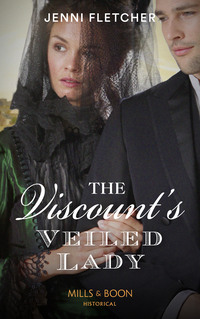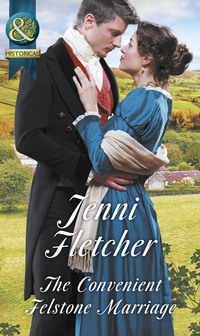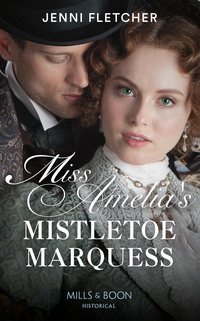
Полная версия
An Unconventional Countess
‘You were there?’ Her head spun towards him so quickly he almost jumped. ‘Is that where you were injured?’
‘Yes.’
‘You called it a skirmish!’
‘A big skirmish.’
‘A big...’ She stared at him with an expression of bewilderment mixed with curiosity. ‘I read that you were outnumbered. Thirty-three French and Spanish ships to twenty-seven British.’
‘That’s right. More than forty thousand men, all told.’
‘What was the name of your ship?’
‘The Colossus.’
‘But I’ve heard of that!’ Bewilderment turned to outright amazement. ‘It was in the middle of the action.’
‘Yes, unfortunately. Our yardarm locked with that of the Argonaute. We were trapped together for ten minutes before the sea swell drove us apart.’
‘And then the Swiftsure surrendered to you?’
‘Eventually, after we gave her a full broadside.’
‘And the Bahama. You destroyed her mainmast.’
He lifted an eyebrow. ‘You know your sea battles, Miss Fortini.’
‘I don’t see why a woman shouldn’t read about such things as well as a man.’
‘Neither do I, especially when that woman has a brother in the navy. Ask me anything you like.’
‘All right.’ She paused as if to gather her thoughts. ‘What was the battle really like? The reports all make it sound so well ordered, but how do you stay in formation?’
‘With many hours of practice, although what Nelson did at Trafalgar hasn’t been done often before. Instead of the fleets facing each other, he divided ours into two columns. We cut through the enemy line instead of confronting them head on. It took them by surprise and gained us the advantage.’
‘Did you know you were winning?’
He shook his head. ‘At close quarters, it’s hard to see anything that’s happening beyond your own ship. There are shards of timber and metal flying all around and you can’t hear because the boom of so many cannons drowns out everything except the ringing inside your own head. You’re aware of men shouting and screaming, but you can’t make out the words. Meanwhile, the smoke burns your lungs so that you can’t answer back, either. Most of the time, you’re just fighting to stay alive.’ He stopped, afraid that he might have said too much, but she seemed to be hanging on every word.
‘It must have been terrifying.’
‘It was. A few other words come to mind, but in essence they mean the same thing. Being responsible for so many lives is frightening enough, but I believe that every man is terrified going into battle. There’s always the chance that you won’t make it out again, but there’s no use in showing it or giving in to the fear, either. And being with your crew and part of the fleet gives you courage.’
‘Sebastian said something similar in one of his letters. He said it was like having a second family.’
‘That’s true. At sea, we all depend on each other for survival. You have to rely on your men to do what they’ve been trained for.’
‘Did the fighting really last three hours?’
‘It did, then the weather that night nearly finished us off. We were in a poor enough state after the battle, but the storm was even worse. Many of us spent the night on deck, waiting to see if we’d be scuppered on the rocks. A number of ships didn’t make it to morning.’
‘And you’d lost your commander.’
‘Yes.’ He clenched his jaw at the memory. ‘During the battle, Nelson refused to go below deck for safety. He wanted to fight alongside us and he said the men needed to see him. Unfortunately a French sharpshooter in the rigging of the Redoubtable saw him, too. The musket ball entered his left shoulder.’
‘It was a great loss.’
‘It was. I remember when we got word of what had happened. The whole fleet fell silent. We’d won, but it felt like defeat.’
‘Maybe all battles feel like that in the end.’ She sounded pensive as they emerged out of the trees and on to a wide pathway leading up to a stone pavilion. ‘It all seems like such a terrible waste.’
‘It was. Thousands of men died that day. The waves were red with...’ He stopped mid-sentence. ‘My apologies. I shouldn’t have said that.’
‘Why not? Because I’m a woman?’ She gave him a pointed look. ‘There’s no need to apologise, Captain Delaney. I like to be told the truth, not be sheltered from it. I appreciate your honesty and...’ she hesitated and then stopped walking again, folding her hands tightly in front of her ‘...if you were to hear any news of my brother’s ship, good or bad, I would appreciate hearing about that, too.’
‘Very well. If I hear anything, I’ll be sure to inform you.’
‘Thank you.’ She cleared her throat, turning her head to watch a squirrel as it ran about on the lawn beside them. ‘I believe I owe you an apology, Captain.’
‘I don’t think—’
‘But I do,’ she interrupted him firmly. ‘I behaved rudely towards you earlier. I made certain assumptions about your character, but I was mistaken. I had no idea what kind of a man you really were.’
What kind of a man...? Samuel froze, struck with a fresh pang of guilt. ‘I’m not sure I understand you, Miss Fortini.’
She made an apologetic face. ‘When you came into my shop earlier I assumed that you were just another bored, indolent member of the aristocracy with too much time on his hands. I didn’t believe that you were really there to buy biscuits for your grandmother. I thought that you had an ulterior motive. Now I know I misjudged you. You’re a gentleman who also works for his living, a man of purpose and honour and bravery.’
‘Ah.’ Samuel rubbed a hand around the back of his neck. Under other circumstances he might have been pleased by such a heroic portrait, but it was hard to swallow when she’d been right the first time. His earlier behaviour had been decidedly unheroic.
‘You don’t like the aristocracy, Miss Fortini?’ He decided to focus on a different part of her speech.
Black lashes fanned over her cheeks as she dipped her gaze evasively. ‘I’m sure there are some perfectly fine examples of gentlemen among the upper classes, but in my experience not many. Take your friend.’ Her lip curled with distaste as she glanced towards Ralph. ‘His sole purpose in life at the moment seems to be the pursuit of my friend.’
‘I thought she was your employee?’
‘Can’t she be both?’ Her gaze shot back to his. ‘Sir, you accused me of being direct earlier so I won’t mince words. I believe that we both know what he wants from her, and that when—if—he gets it, he’ll abandon her as he already has countless others, I’m sure. I’ve lived in Bath my whole life and I’ve seen it happen more times than I can remember. Gentlemen may visit for the Pump Rooms, but they find other ways to pass their time and they see women like us as fair game. That’s the reason your friend feels entitled to call into my shop whenever he feels like it without buying anything, why he thinks it acceptable to ask Henrietta to walk without a chaperon, too. He would never behave in such a way with a lady.
‘Well, she is not fair game, Captain. She’s eighteen years old and far too sweet-natured to understand what he really wants and, if you’re truly a man of honour as I believe you to be, I beg you to dissuade him from pursuing her.’ She took a step forward and placed a hand on his arm, her tone entreating as her fingers curled gently around his wrist. ‘No good can come of it.’
Samuel listened in silence. By the end of her speech she was flushed and breathless and he was feeling somewhat mortified, not by her bluntness, but by the truth behind it. Every word she’d just spoken filled him with shame, the touch of her hand on his arm like a burning hot iron. Every word was true, too, except for the part when she’d called him a man of honour. An honourable man would never have entered the shop and helped Ralph in the first place. An honourable man would have turned around and walked away. Which meant that all he could do now was try to put things right and behave like the man she thought him to be. Her impassioned speech and those soulful dark eyes made him want to be heroic again. Nearly as much as they made him want to kiss her, too. Quite suddenly and unexpectedly, right there in the middle of the park, in a way that definitely wouldn’t improve her opinion of gentlemen...
‘You look tired, Miss Fortini.’ He pulled his arm away before he could do something he might regret. Now that they were standing so close he could see her face clearly and in truth she looked a stage beyond tired. She looked exhausted, her brown eyes ringed with dark shadows that made them appear even bigger. ‘You ought to go home and rest.’
‘Didn’t you hear me, Captain?’ She sounded dismayed.
‘I did.’ A new suspicion occurred to him. ‘I wondered if you were speaking from personal experience?’
She took a step backwards as if he’d just threatened her, her face blanching visibly. ‘What difference would it make if I was?’
He clamped his brows together. She was right. Her past experiences, whatever they were, made no difference at all to their current situation. As much as he wanted to know the answer, it was none of his business.
‘Tell me, then...’ he said, swallowing a different question ‘...does your friend usually walk home on her own at this time of evening?’
‘Yes.’ Her expression was guarded now. ‘Although one of her brothers usually meets her on Pulteney Bridge.’
‘Good. In that case, give me five minutes and I’ll remember an urgent reason for myself and Mr Hoxley to be elsewhere. You have my word as a naval officer and...’ he paused, resisting the urge to grimace ‘...a gentleman. If you’ll trust me, that is, Miss Fortini?’
She didn’t answer at first, holding on to his gaze for a few intense moments, her expression turning gradually from indecision to conviction to something that made his pulse start to accelerate.
‘Thank you, Captain Delaney,’ she said, nodding finally. ‘I believe that I do trust you. Five minutes, then.’ She dipped into a curtsy. ‘And the next time your grandmother would like some biscuits, I’d be more than happy to deliver a tin myself.’
‘I’ll be sure to tell her.’ He made a formal bow, but she was already turning away, waving a farewell to her friend before walking briskly towards one of the park gates.
Samuel felt an unexpectedly warm glow in his chest, followed by a pang of regret as he watched the subtle sway of her hips across the lawn. It was a pity that his future was so unsettled, otherwise she was exactly the kind of woman he would have been interested in: intelligent, capable and strong-willed. He’d almost fallen back into old ways that afternoon, the ones he thought he’d left behind when he’d joined the navy, but somehow Miss Fortini had stopped him. He’d been perilously close to steering off tack and she’d set him back on course. He actually felt grateful to her.
He heaved a sigh as she turned out of the gate and disappeared from view. It was really a pity...but it was also pointless to dwell upon what-might-have-been. Apart from anything else, she’d made her opinion of the aristocracy abundantly clear and, if she found out who he was besides a naval officer, who he might be anyway, then no doubt she’d walk away from him again even faster.
On the other hand, if events unfolded the way he wanted them to and he remained plain Captain Delaney, perhaps he might permit himself to visit her shop again one day. Not with Ralph obviously, especially since they were about to have the kind of full and frank discussion that would undoubtedly ruin their friendship for ever, but on his own and with honourable intentions this time. In another couple of months, perhaps, when the matter of his possible inheritance was settled...
In the meantime, it was probably best to keep away. He was developing an unfortunate appetite for biscuits as it was.
Chapter Four
Anna closed and latched the window shutters, drew two iron bolts across the shop door and then trudged up the back staircase to the parlour, wearily untying the ribbons of her bonnet as she went. A walk through Sydney Gardens had been the last thing she’d needed after a day that had started twelve hours before. Her neck felt stiff and her feet ached with tiredness, even more so than usual, but at least now she could rest.
From a shopkeeper’s perspective, however, she couldn’t complain. It had been another profitable day. She oughtn’t to complain at all, she chided herself, especially when she had so much to be grateful for—an honest and reliable source of income, a warm and dry home, and independence to boot. The shop that her parents had founded almost twenty-five years earlier had become so popular with the spa visitors of Bath that they’d eventually been able to buy the whole building on Swainswick Crescent, narrow and compact as it was. There were three floors: the shop and kitchen below, a parlour in the middle and two small bedrooms in the attic. The parlour was the biggest room overall, with one large window where her mother liked to sit and watch the comings and goings on the street below. No doubt she would have seen Captain Delaney and his irritating companion earlier. Anna wondered what she’d thought of them, not to mention her and Henrietta’s unprecedented early departure...
‘Good evening, Mama.’
She found the scene just as she’d expected, her mother sitting in her customary armchair with an open book in her lap.
‘Good evening, dear.’ Elizabeth Fortini looked up from her reading with a smile. ‘I was starting to wonder where you’d got to.’
‘Henrietta wanted a walk in the park so I said that I’d join her.’ Anna dropped down onto a sofa, telling herself that it wasn’t a lie exactly, even if it wasn’t the whole truth, either. ‘It was nice to get some fresh air.’
‘I’m surprised you had the strength after such a long day.’ Her mother tipped her head to one side sympathetically. ‘You work too hard, my darling. I wish I could help more.’
‘It’s not your fault, Mama.’ Anna gestured towards her mother’s swollen fingers. ‘I know you’re in pain.’
‘It pains me to see you looking so exhausted, too.’ Her mother stood up, wincing as she put weight on to her ankles. ‘I’ll make us some dinner.’
‘It’s all right, I’ll do it in a few minutes.’
‘You will not.’ Her mother limped slowly across the room. ‘I may not be much help in the shop any more, but I can still be useful in other ways. Now you have a rest and I’ll be back soon.’
Anna smiled gratefully, too tired to argue. She was almost too tired to eat, although she knew that she had to. More than that, she was tired of simply being tired, but there seemed to be no way around it. There was always so much to do. When she wasn’t baking, she was wrapping or stacking or cleaning or sweeping or preparing tins or doing one of the hundred other tasks that seemed to require her constant attention. Henrietta was an able assistant, but she only arrived at seven o’clock in the morning when the baking was already done and left again at four in the afternoon. Anna couldn’t afford to pay longer hours, which meant that any remaining jobs fell to her and they were...relentless.
Yawning, she tipped her head back and closed her eyes. Things hadn’t been so bad while her father was still alive. After the swelling in her mother’s joints had started ten years before, first in her fingers and toes, then in her hands and feet, Anna had taken on more and more of her responsibilities in the shop and enjoyed them, too. She’d enjoyed running a business, unlike Sebastian who’d gone off in search of adventure the moment he’d turned seventeen. She’d been the one to suggest they start making cinnamon and rosewater-infused biscuits and to start offering tins as well as cloth-wrapped bundles.
In return, her father had taught her everything he knew, which was a great deal, but unfortunately not how to find extra hours in the day or how to go without sleep, either. His sudden heart failure had left her with a shop to run as well as an ailing, grieving mother to take care of. Not that she resented either task, but it was hard sometimes not to feel trapped in an endless cycle of monotonous chores. No matter how much she saved, it still wasn’t enough for a holiday—just a few days, or weeks preferably, to break free of the routine and maybe travel a little. It didn’t have to be far, just somewhere different. Somewhere to enjoy a little free time to read or to walk or to simply lie around daydreaming...
For some reason, the thought of daydreaming conjured up an image of Captain Delaney. His hair, somewhere between chestnut and auburn, those startling pale eyes and that deep voice that made her insides feel curiously soft and malleable, like an undercooked biscuit. He’d looked so handsome waiting for her and Henrietta in the park that she’d almost been tempted to take his arm when he’d offered it to her, but common sense had prevailed. She’d known better than to trust a gentleman.
As it turned out, however, she’d been wrong about him. She’d been so certain that he’d been trying to distract her in the shop, but apparently he really had been there to buy biscuits. She’d assumed the worst and discovered the exact opposite. Aristocratic though he obviously was, he was also a naval captain and not just any naval captain, but a national hero, a brave and honourable man instead of the rake she’d assumed. Their conversation in the park had been genuinely interesting and without any of the mocking undertones she’d detected earlier. Instead, his manner had been open and honest, enough that she’d felt able to appeal to his better nature to save Henrietta. Admittedly, he’d seemed somewhat taken aback by the request at first, so much so that for a few moments she’d thought he’d been offended on his friend’s behalf, but to her relief his words had eventually proven otherwise.
Only the severity of his expression when he’d asked if her comments about gentlemen were based upon personal experience had unsettled her, conjuring up memories she preferred to forget. Then his gaze had seemed to bore into the back of her head, giving the uncomfortable impression that he could read all of her secrets. Thankfully he hadn’t persisted in his questioning, asking her to trust him instead, and his gaze had softened then, causing a warm, tingling sensation in her chest. The feeling had actually been quite pleasant, as if some kind of unspoken communication were passing between them. It had made her decide to trust him, although she still couldn’t help but wonder if she’d done the right thing by leaving Henrietta.
Whether she had or hadn’t, however, she was far too tired to think about it now. But she liked his name, she thought sleepily. Captain Samuel Delaney. It had a nice ring to it, an authoritative ring, and it was nice to know that a few real gentlemen still existed in the world, even if it was unlikely that she’d ever see him again. Gentlemen who looked even more attractive when they turned out to be captains and bought biscuits for their grandmothers...

‘I have a present for you.’ Samuel deposited the tin he’d been carrying for the better part of two hours into his grandmother’s narrow lap. ‘Don’t say I never give you anything.’
‘Except for white hairs and anxiety, you mean?’ Lady Jarrow regarded the offering with an air of suspicion. ‘What is it?’
‘They’re Belles... Biscuits,’ he clarified as his grandmother stared at him blankly. ‘I’m told they’re famous in Bath.’
‘I’ve never heard of them in my life.’
‘I have.’ His grandfather’s steel-rimmed spectacles peered over the top of a newspaper opposite. ‘They’re something of an institution, actually.’
‘Do you mean to say you’ve eaten them before?’ His grandmother sounded as shocked as if her husband had just announced an illegitimate child.
‘Dozens. I discovered them a few years ago and now I insist upon having one every morning when I’m in town. Two, sometimes.’
‘Then why haven’t I eaten one before?’
‘I’m sure you have, my dear.’ The newspaper lifted again. ‘Only you were probably busy thinking about a new saddle or something.’
‘Harumph.’ Lady Jarrow made short work of the ribbon. ‘I have a perfectly good collection of saddles, as you very well know. If anything, I’d be thinking about riding boots. I could do with a new pair.’ She removed the lid and tossed it at Samuel. ‘Well, this looks very pretty, I must say. I’ll ring for tea. I can’t abide sweet things without it.’
‘I’m glad that you approve, Grandmother.’
Samuel sprawled in an armchair, looking between his grandparents with a combination of amusement and affection. Aside from his mother and half-sister in Cumberland they were the only family he had, not that he’d ever had a great many family members to speak of. Thanks to his father’s notoriety in gambling, drinking and generally throwing away his inheritance, no one from the paternal side of the family had ever deigned to acknowledge Samuel, too afraid he might prove to be a chip off the old block. They’d all thought of him as tainted, refusing to budge from that opinion no matter how hard he’d tried, during the past ten years anyway, to prove otherwise.
Fortunately, his maternal relations had been made of sterner stuff, refusing to let the sins of a detested son-in-law influence their feelings for his offspring. His grandmother in particular had always been a force to be reckoned with, a renowned beauty in her youth as well as an heiress, though she’d always preferred spending time with her horses to listening to recitations of love poetry from her many admirers. She’d sat doggedly on the shelf until the shockingly great age of eight and twenty, until the day she’d set eyes on the bookish and shy Lord Jarrow. Seven years her junior, the young Baron had been as surprised as anyone by her sudden interest. Somewhat alarmed, too, since, as he frequently remarked to his grandson, when it came to a battle of wills he’d known he hadn’t stood a chance. Where Georgiana had a will, she got her way. Their marriage had gone ahead with almost indecent haste and they’d immediately retired to the country to build a new block of stables and restock the library. He’d had his books, she’d had her horses, and they’d lived in perfect contentment for fifty years ever since. It was, in Samuel’s opinion, an excellent example of a happy marriage. Quite unlike that of his parents.
‘Have you been to the Pump Rooms today?’ he enquired of the newspaper.
‘Of course he has,’ his grandmother answered, as was frequently the case, for her husband. ‘It’s the reason we’re staying in this wretched city, after all.’
‘There are still parks for riding in, Grandmother.’
‘Pshaw! It’s hardly riding when one’s constantly expected to stop and make conversation. You’d think that horses were simply chairs! If people don’t care about their animals, then they’d be better off using their feet.’
Samuel chuckled, though the very fact of his grandmother’s presence in Bath made him uneasy. On every other occasion when his grandfather had come to take the medicinal waters she’d remained at their home in Rutland. The fact that she’d joined him this time suggested the seventy-one-year-old Baron’s health was worse than either of them were letting on.
‘I thought we might all go together on Monday,’ his grandfather commented, folding his newspaper as the tea tray arrived. ‘We could make a family outing of it, so to speak.’
‘I’d be delighted, Grandfather.’
‘Well, I wouldn’t, but I will because I’m a good wife.’ The Baroness lifted her eyebrows provocatively, though neither Samuel nor his grandfather were foolish enough to contradict the statement. ‘But only on two conditions. One, that I don’t have to drink any of that disgusting liquid. Two, that Samuel wears his uniform.’








